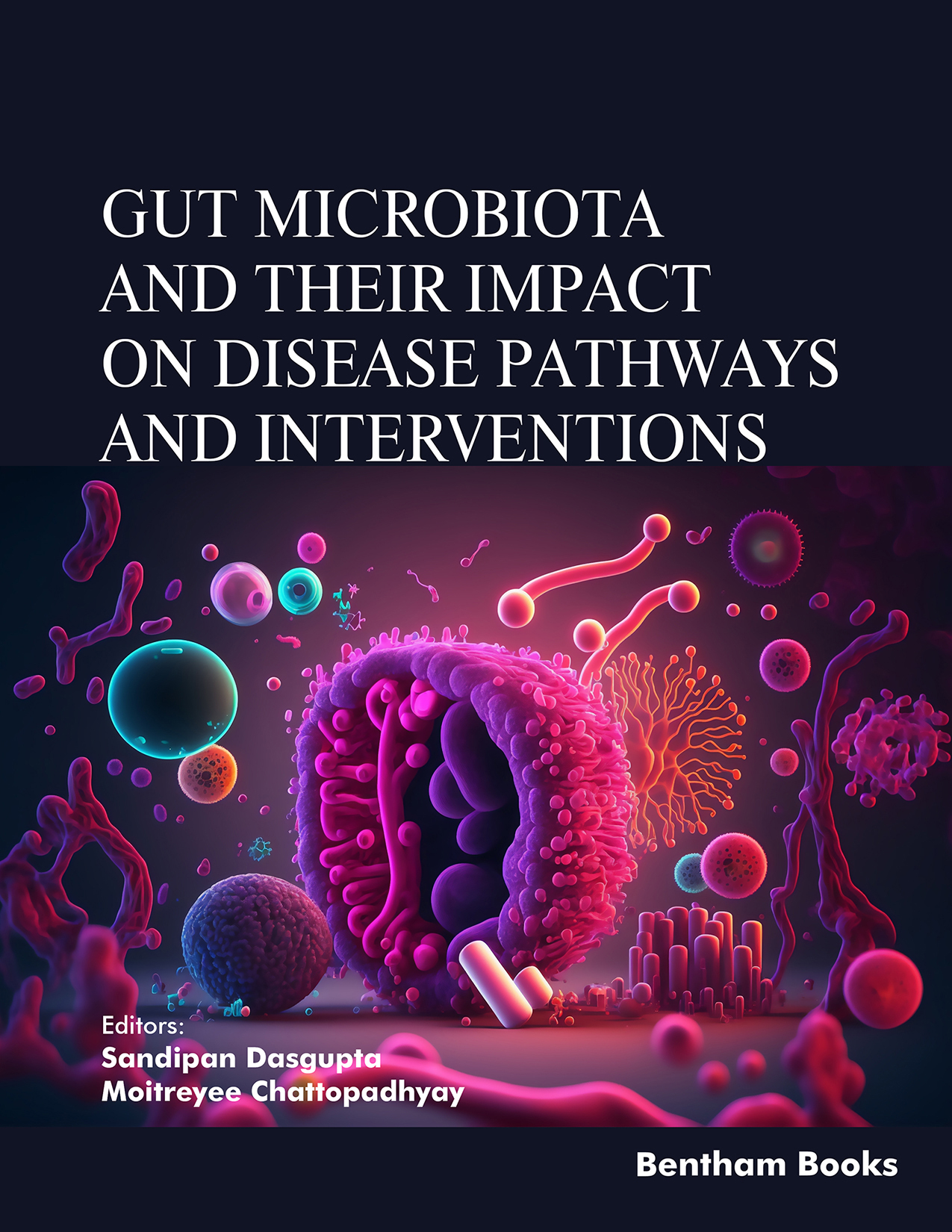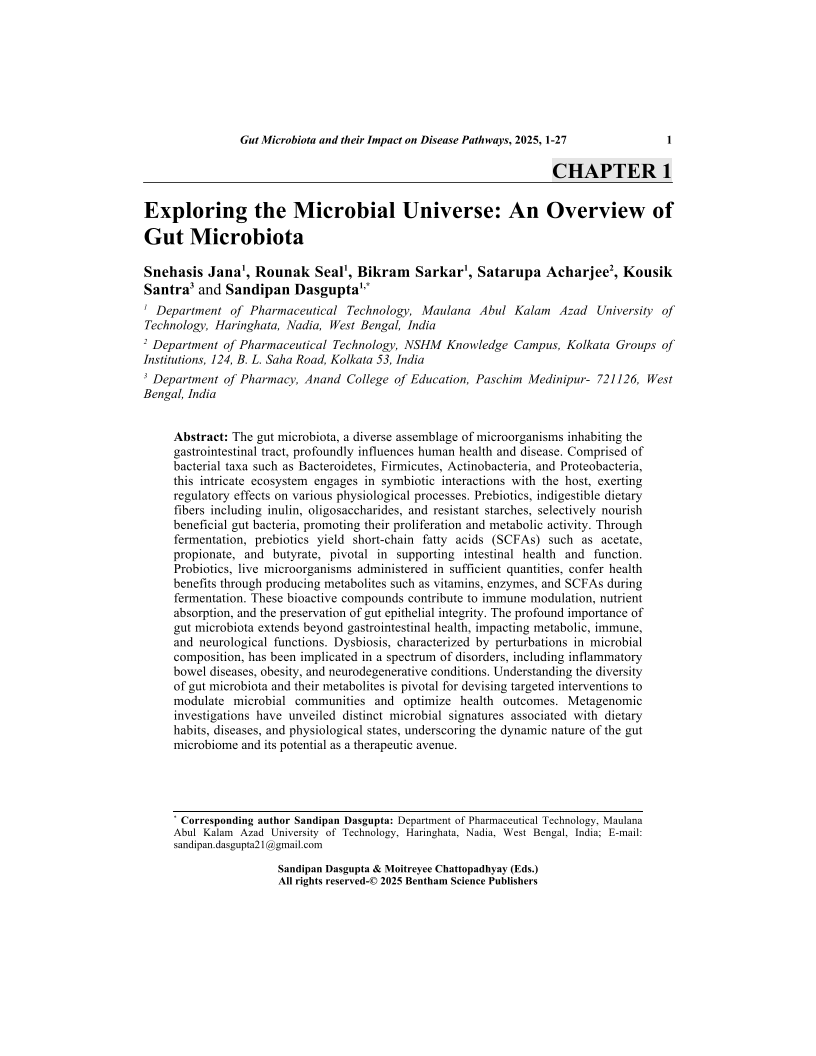Exploring the Microbial Universe: An Overview of Gut Microbiota

- Authors: Snehasis Jana1, Rounak Seal2, Bikram Sarkar3, Satarupa Acharjee4, Kousik Santra5, Sandipan Dasgupta6
-
View Affiliations Hide Affiliations1 Department of Pharmaceutical Technology, Maulana Abul Kalam Azad University of Technology, Haringhata, Nadia, West Bengal, India 2 Department of Pharmaceutical Technology, Maulana Abul Kalam Azad University of Technology, Haringhata, Nadia, West Bengal, India 3 Department of Pharmaceutical Technology, Maulana Abul Kalam Azad University of Technology, Haringhata, Nadia, West Bengal, India 4 Department of Pharmaceutical Technology, NSHM Knowledge Campus, Kolkata Groups of Institutions, 124, B. L. Saha Road, Kolkata 53, India 5 Department of Pharmacy, Anand College of Education, Paschim Medinipur 721126, West Bengal, India 6 Department of Pharmaceutical Technology, Maulana Abul Kalam Azad University of Technology, Haringhata, Nadia, West Bengal, India
- Source: Gut Microbiota and their Impact on Disease Pathways and Interventions , pp 1-27
- Publication Date: April 2025
- Language: English
Exploring the Microbial Universe: An Overview of Gut Microbiota, Page 1 of 1
< Previous page | Next page > /docserver/preview/fulltext/9789815324549/chapter-1-1.gif
The gut microbiota, a diverse assemblage of microorganisms inhabiting the gastrointestinal tract, profoundly influences human health and disease. Comprised of bacterial taxa such as Bacteroidetes, Firmicutes, Actinobacteria, and Proteobacteria, this intricate ecosystem engages in symbiotic interactions with the host, exerting regulatory effects on various physiological processes. Prebiotics, indigestible dietary fibers including inulin, oligosaccharides, and resistant starches, selectively nourish beneficial gut bacteria, promoting their proliferation and metabolic activity. Through fermentation, prebiotics yield short-chain fatty acids (SCFAs) such as acetate, propionate, and butyrate, pivotal in supporting intestinal health and function. Probiotics, live microorganisms administered in sufficient quantities, confer health benefits through producing metabolites such as vitamins, enzymes, and SCFAs during fermentation. These bioactive compounds contribute to immune modulation, nutrient absorption, and the preservation of gut epithelial integrity. The profound importance of gut microbiota extends beyond gastrointestinal health, impacting metabolic, immune, and neurological functions. Dysbiosis, characterized by perturbations in microbial composition, has been implicated in a spectrum of disorders, including inflammatory bowel diseases, obesity, and neurodegenerative conditions. Understanding the diversity of gut microbiota and their metabolites is pivotal for devising targeted interventions to modulate microbial communities and optimize health outcomes. Metagenomic investigations have unveiled distinct microbial signatures associated with dietary habits, diseases, and physiological states, underscoring the dynamic nature of the gut microbiome and its potential as a therapeutic avenue.
-
From This Site
/content/books/9789815324549.chapter-1dcterms_subject,pub_keyword-contentType:Journal -contentType:Figure -contentType:Table -contentType:SupplementaryData105

